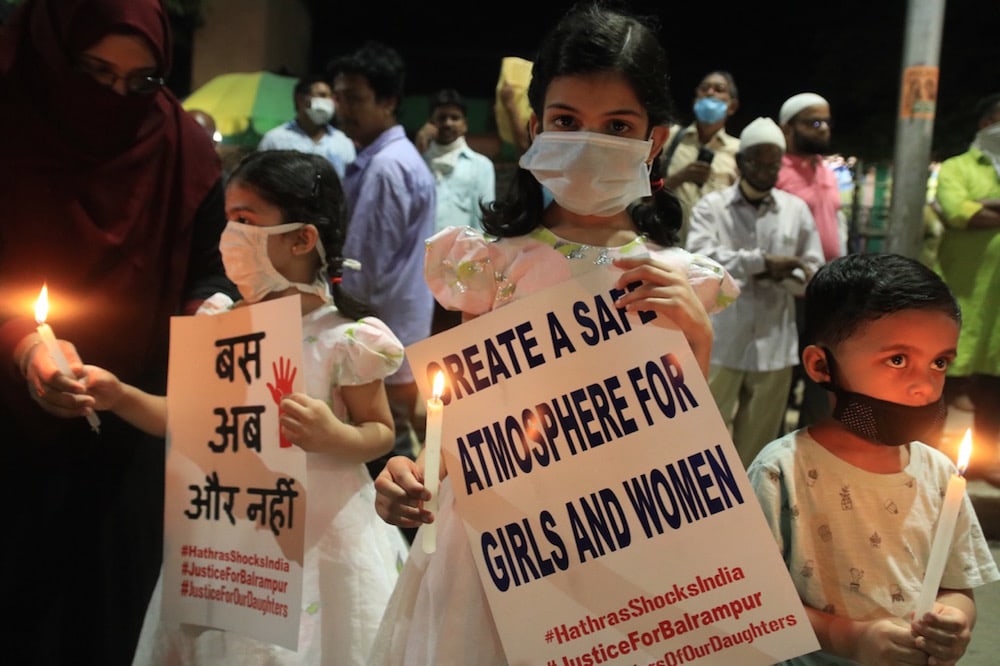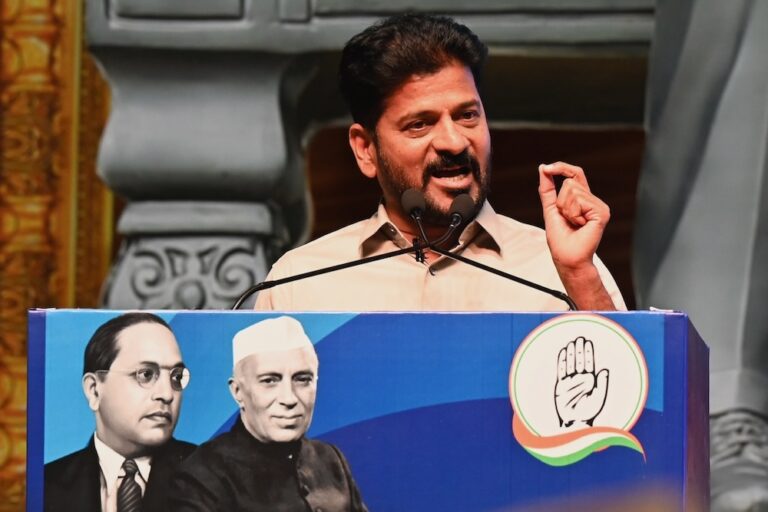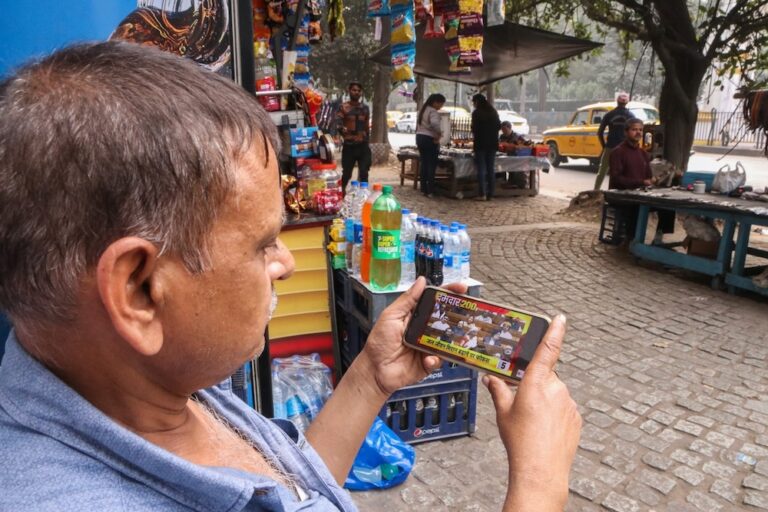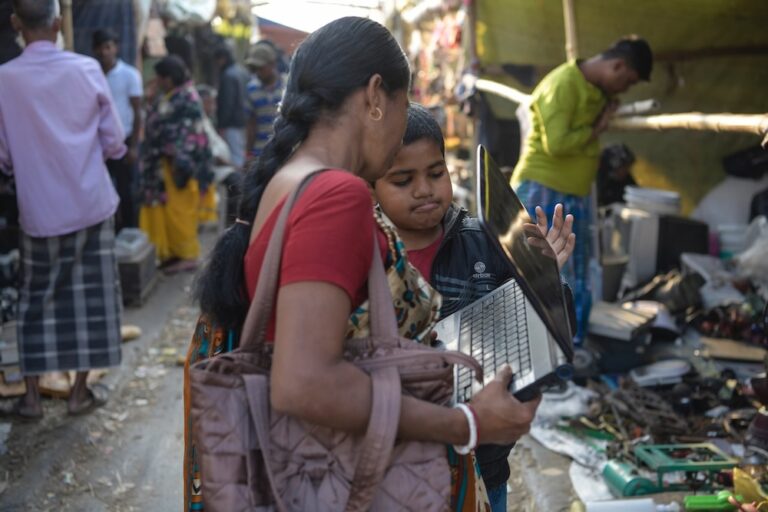Several Muslim women, including journalists, were 'auctioned off' in a malicious app in India.
This statement was originally published on rsf.org on 4 January 2022.
An app pretending to “auction” prominent Muslim women including journalists was posted online in India on 1 January. After talking to many Muslim women journalists, Reporters Without Borders (RSF) calls on the Indian authorities to intervene to put a stop to this form of harassment, which is both revolting and potentially dangerous for its targets.
“It started on the 1st of January,” said Ismat Ara, a journalist who works for The Wire news website. “One of my friends sent me an image and I opened it thinking it’s a Happy New Year wish, but it wasn’t. It was quite shocking to see my picture there.” Underneath her photo were the words: “Your BulliBai of the day.”
“BulliBai” is the name of the app posing as a special kind of auction house that appeared on 1 January on GitHub, a software development platform popular in India, and has been widely downloaded since then. A term of unclear origin – it refers to a penis in southern India and a female servant in northern India – “Bulli Bai” is now an insult for Muslim women throughout the country, one widely used by online trolls who support the Hindu nationalist right.
Photos of around 100 women – stolen from their social media accounts – and personal information about them have been posted on the app as if they are being “auctioned off” or “made available” to the app’s users. The victims include many journalists like Ismat Ara.
Commodification
Ara told RSF that she has filed a complaint about the app. “In my complaint I have called it a conspiracy because it’s also a sort of coordinated attack against a type of Muslim women,” she said. “It’s very dehumanising – people are commodifying you, objectifying you.”
The outcry in India has been such that Microsoft, GitHub’s owner, has taken the app down and India’s Electronics & Information Technology minister, Ashwini Vaishnaw, said in a tweet on 2 January that the police were looking into it. The police in Mumbai announced this morning that an initial arrest had been made.
“The appearance of this kind of app, offering to place women journalists at the disposal of its users as if they were objects, is absolutely chilling,” said Daniel Bastard, the head of RSF’s Asia-Pacific desk. “We urge the Indian authorities to do whatever is necessary to bring those responsible for such apps to justice. To do nothing would be to condone an extremely violent form of harassment, a form of intimidation that discriminates against an entire sector of the journalistic community and exposes those targeted to potential physical attacks.”
No place in public life
Ara told RSF: “As a journalist, it becomes risky to have pictures of this kind floating around because I am in the field quite a lot. What if people physically harm me? I wouldn’t want this to happen to anybody else.”
This phenomenon is all the more shocking because it’s not the first time that Muslim women journalists have been “auctioned off” on social media. As RSF reported at the time, an app almost identical to BulliBai, called “SulliDeals,” appeared on GitHub in July 2021. “Sulli” is yet another degrading term for Muslim women that is much used by far-right activists linked to Hindu fundamentalism.
The Print website editor Fatima Khan, who was one of several journalists advertised as “deal of the day” on SulliDeals, described the effect of this especially shocking form of harassment to RSF. “The common thread among all the targets is that these are all vocal Muslim women who aren’t afraid of expressing themselves,” she said. “The idea is to humiliate them and send the message that they don’t belong in public life.”
The most vocal women journalists are the favourite targets of the trolls who use these apps. “This has been happening to me for four to five years now,” well-known Radio Mirchi presenter Sayema told RSF. “What with the morphing of my photos and the use of undiplomatic language, this method of silencing a woman is not new. It’s as if they want to put me back in my place after I’ve been pretty vocal on Twitter.”
Impunity
The users of this kind of app seem to think that a certain category of people should not be allowed to be journalists. “In India we have seen a rise in communal targeting,” Sayema said. “Everything about you is targeted – firstly, you’re a woman, secondly you’re a Muslim and thirdly you are a popular and progressive liberal voice.”
The most worrying aspect, in her view, is the impunity accompanying the emergence of this phenomenon. “In July, there was systematic auctioning and that should have been a wakeup call, but nothing happened,” she said. Complaints were registered with the police, “but what happened after that?” she asked.
No one was charged and no one was arrested. This complicit lack of reaction from the authorities encourages those responsible for the harassment, who are steeped in the climate of hatred towards India’s Muslim minority that is fostered by Hindutva supporters. Hindutva is the Hindu nationalist ideology that spawned the Bharatiya Janata Party, the party led by Narendra Modi, India’s prime minister since 2014.
Vicious circle
For journalists from these minorities, especially women journalists, a vicious circle is slowly but surely closing on them. Harassment, impunity, intimidation, self-censorship, silence…
Hida Beg, who writes for The Quint, described this mechanism on Twitter. “You did nothing to stop this the last time, and here it is again. I have censored myself, I hardly speak here anymore, but still, I am being sold online, I’m being made ‘deals’ out of.”
Quratulain Rehbar, a freelance journalist from Muslim-majority Kashmir who was among those offered for sale on BulliBai, experienced the devastating effects of this harassment in a very personal way.
“I come from a conservative society, but I felt this was something we had to talk about,” she said. “This is a serious issue and I felt I should tell somebody who is also a victim that they are not alone. But I couldn’t tell my mother.” She explained that her mother recently asked her: “Do you think you should do something else?” The implication was that she should quit journalism for the sake of her personal safety. “I have no hope,” Rehbar added.
India is ranked 142nd out of 180 countries in RSF’s 2021 World Press Freedom Index.



